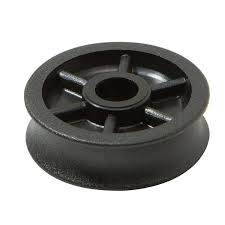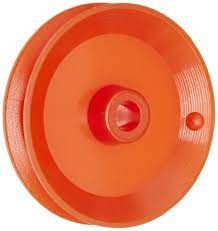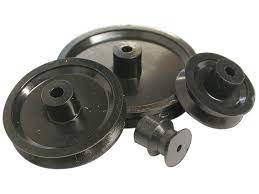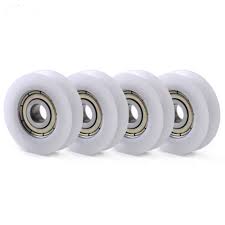Product Description
China Manufacturers Custom Nodular Product Cast Iron Pulley Wheels
|
Automatic Molding Line —Save Cost And Improve Production Efficiency for ur projects!
Matech Industry ltd specializes in Metal Parts Solution for Vehicle, Agriculture machine, Construction Machine, transportation equipment, Valve and Pump system.
With keeping manufacturing process design, quality plHangZhou, key manufacturing processes and final quality control in house we are mastering key competence to supply quality mechanical parts and assembly to our customers for both China and Export Market .
To satisfy different mechanical and functional requirements from our customers we are able to make a big range of metal products for our clients on base of different blanks solutions and technologies. These blanks solutions and technologies include processes of Iron Casting, Steel Casting, Stainless Steel Casting, Aluminum Casting and Forging.
During the early involvement of the customer’s design process we are able to provide professional input to our customers in terms of process feasibility, cost reduction and function approach. You are welcome to contact us for technical enquiry and business cooperation.
FAQ:
1. What do you do?
We can custom make metal parts according to your drawings or samples.
We are a professional manufacturer with over 15 years’ export experience for designing and producing vehicle machinery parts. Focus on saving cost, function approach, production feasibility for your projects.
2. How can I get some samples?
If you need, we are glad to offer you samples for free, but the new clients are expected to pay the courier cost, and the charge will be deducted from the payment for formal order.
3. Can you make Alloy Steel Castings according to our drawing?
Yes, we can make Alloy Steel Castings according to your drawing, 2D drawing, or 3D cad model. If the 3D cad model can be supplied, the development of the tooling can be more efficient. But without 3D, based on 2D drawing we can still make the samples properly approved.
4. Can you make Alloy Steel Castings based on our samples?
Yes, we can make measurement based on your samples to make drawings for tooling making.
5. What’s your quality control device in house?
We have spectrometer in house to monitor the chemical property, tensile test machine to control the mechanical property and UT Sonic as NDT checking method to control the casting detect under the surface of Alloy Steel Castings.
WHY CHOOSE US
1. Over 15 years professional manufacture experience. → We know better to your needs.
2. One-stop Service of Custom mold design from Initial drawing design, Material selection assistance, Mold structure/Mold flow analysis, Trial & mass production to Final assembly & shipment. → To ensure you get finished products with good assembly function.
3. High skilled and well-trained working team under good management environment. → To make sure high quality of your products.
4. Large and strong production capacity. → To meet your high demands very well.
5.Best price based on same quality requirements. →To help your project with most economical solution.
6. We have very strict quality control process included IQC/IPQC/FQC/OQC. → To deliver the qualified products for you.
7.Reliable Package & flexible in-time delivery. →To guarantee the product are well received in your side.
8. 24 hours on-line service with quick response. → To support your any inquiry or question.
CONTACT US FOR INQUIRY NOW!!!
/* January 22, 2571 19:08:37 */!function(){function s(e,r){var a,o={};try{e&&e.split(“,”).forEach(function(e,t){e&&(a=e.match(/(.*?):(.*)$/))&&1
| Type: | Chemical Hardening Sand |
|---|---|
| Casting Method: | Mechanical Aided Pouring or Semi-Automatic Pouring |
| Sand Core Type: | Resin Sand Core |
| Application: | Cast Iron Pulley Wheels |
| Machining: | CNC Machining |
| Material: | Iron |
| Samples: |
US$ 2/Piece
1 Piece(Min.Order) | |
|---|
| Customization: |
Available
| Customized Request |
|---|
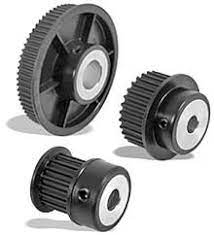
How are plastic pulleys used in material handling and packaging machinery?
Plastic pulleys play a crucial role in material handling and packaging machinery. Here’s a detailed explanation:
1. Conveyor Systems:
In material handling applications, plastic pulleys are commonly used in conveyor systems. Conveyor belts are driven by pulleys, and plastic pulleys are favored for their lightweight yet durable construction. Plastic pulleys provide smooth and reliable power transmission, ensuring efficient movement of materials along the conveyor belt. They are resistant to corrosion, which is particularly advantageous in environments where moisture or chemicals may be present.
2. Tensioning and Tracking:
Plastic pulleys are utilized for tensioning and tracking purposes in material handling machinery. Tensioning pulleys help maintain the appropriate tension of belts or chains in conveyor systems, preventing slippage and ensuring consistent movement. Plastic pulleys are often equipped with built-in bearings or bushings, facilitating easy rotation and adjustment. Additionally, plastic pulleys with tracking grooves or flanges are used to keep belts aligned and centered, minimizing the risk of misalignment or product damage.
3. Packaging Machinery:
In packaging machinery, plastic pulleys are employed in various applications. They are frequently used in equipment such as wrapping machines, carton sealers, labeling machines, and case packers. Plastic pulleys assist in the smooth movement and positioning of packaging materials, ensuring precise and efficient packaging operations. Their lightweight nature minimizes the load on the machinery, allowing for faster acceleration and deceleration during packaging processes.
4. Bottle and Container Handling:
Plastic pulleys find extensive use in bottle and container handling systems. These systems are responsible for transferring bottles or containers from one location to another, such as filling stations, capping machines, or labeling stations. Plastic pulleys with specific designs, such as grooves or teeth, enable secure grip and smooth transfer of bottles or containers, preventing slippage or damage. They are also resistant to chemical substances commonly found in the packaging industry.
5. Rotary Tables and Indexers:
Rotary tables and indexers are commonly used in material handling and packaging machinery to control the precise movement and positioning of products. Plastic pulleys are utilized in these systems to provide smooth and accurate rotation or indexing. They contribute to the precise alignment of workpieces or products, ensuring reliable and consistent performance. Plastic pulleys with low friction properties enhance the efficiency of rotary tables and indexers, reducing power consumption and wear.
6. Automated Guided Vehicles (AGVs):
AGVs are autonomous mobile robots used for material handling applications within warehouses or manufacturing facilities. Plastic pulleys are often incorporated into the drive systems of AGVs to facilitate smooth movement and steering. These pulleys contribute to the accuracy and reliability of AGV navigation, enabling efficient transportation of materials or products. Additionally, plastic pulleys are lightweight, which helps optimize the payload capacity and energy efficiency of AGVs.
7. Ergonomic Handling Equipment:
Plastic pulleys are utilized in ergonomic handling equipment, such as lift-assist devices or ergonomic conveyors. These systems are designed to reduce the physical strain on operators during material handling tasks. Plastic pulleys enable smooth and effortless movement of loads, enhancing operator comfort and productivity. Their lightweight construction makes them suitable for portable or adjustable equipment, allowing for versatile and user-friendly handling solutions.
In summary, plastic pulleys are integral components in material handling and packaging machinery. Their versatility, lightweight construction, durability, and resistance to corrosion and chemicals make them well-suited for various applications in these industries. Plastic pulleys contribute to the efficiency, reliability, and smooth operation of machinery, ultimately enhancing productivity and ensuring accurate handling and packaging of materials and products.
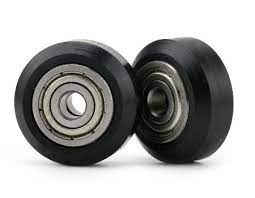
Can plastic pulleys be customized for specific machinery and equipment?
Yes, plastic pulleys can be customized to meet the specific requirements of machinery and equipment. Here’s a detailed explanation:
Plastic pulleys offer a high degree of design flexibility, allowing for customization to match the needs of different machinery and equipment. Here are some key points regarding the customization of plastic pulleys:
1. Material Selection:
Plastic pulleys can be manufactured using various types of plastics, such as nylon, polyethylene, acetal (POM), or polyurethane. The choice of material depends on the specific application requirements, including factors like load capacity, wear resistance, chemical resistance, temperature tolerance, and desired friction properties. Different materials can be selected to optimize the performance and durability of the pulley in the given machinery or equipment.
2. Shape and Size:
The shape and size of plastic pulleys can be customized to fit the available space and interface with other components in the machinery or equipment. Manufacturers can design pulleys with specific dimensions, such as diameter, width, and bore size, to ensure proper alignment, belt or chain engagement, and tension. Customized shapes can include flanges, grooves, or other features that facilitate efficient power transmission and enhance the overall functionality of the machinery or equipment.
3. Mounting Options:
Plastic pulleys can be customized with different mounting options to suit the specific requirements of machinery or equipment. Mounting options can include bores, keyways, set screws, or other mechanisms that enable secure attachment to shafts or other rotating components. Customized mounting options ensure proper installation and alignment of the pulleys, contributing to reliable and efficient operation.
4. Groove Configuration:
In belt-driven systems, plastic pulleys can be customized with different groove configurations to accommodate specific belt profiles. Pulleys can be designed with V-grooves, flat grooves, or multi-groove profiles, depending on the type of belt being used. Customized groove configurations ensure optimal belt engagement, tracking, and power transmission, minimizing slippage and maximizing efficiency in the machinery or equipment.
5. Surface Finish:
The surface finish of plastic pulleys can be customized to meet specific requirements. This includes factors such as roughness, texture, or the addition of coatings or treatments. For example, pulley surfaces can be polished or coated to reduce friction, improve wear resistance, or enhance corrosion resistance. Customized surface finishes help optimize the performance and longevity of plastic pulleys in the machinery or equipment.
6. Load Capacity and Reinforcement:
If the machinery or equipment operates under heavy loads or high-stress conditions, plastic pulleys can be customized to enhance their load-carrying capacity. Reinforcing elements, such as fibers or fillers, can be added to the plastic material to increase strength and improve overall durability. Customized reinforcement ensures that the plastic pulleys can withstand the specific loads and forces encountered in the machinery or equipment.
7. Application-Specific Requirements:
Plastic pulleys can be customized to meet application-specific requirements. For example, in food processing equipment, the pulleys may need to comply with specific hygiene standards, such as being made from food-grade materials that are easy to clean. In corrosive environments, the pulleys can be customized to exhibit enhanced chemical resistance. Customization allows plastic pulleys to be tailored to the unique demands of different machinery and equipment.
Overall, plastic pulleys can be customized in terms of material selection, shape and size, mounting options, groove configuration, surface finish, load capacity, and meeting application-specific requirements. This customization ensures that the plastic pulleys seamlessly integrate into the machinery or equipment, providing optimal performance, durability, and reliability in their intended applications.
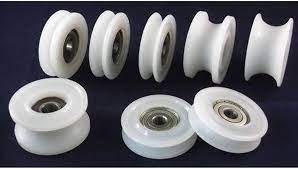
What is a plastic pulley, and how does it compare to other types of pulleys?
A plastic pulley is a type of pulley made primarily from plastic materials, such as nylon, polyethylene, or polycarbonate. It is designed to perform similar functions as other types of pulleys but offers distinct advantages and considerations. Here’s a detailed comparison of plastic pulleys with other types of pulleys:
1. Material:
Plastic pulleys are specifically engineered to be lightweight and durable. They are resistant to corrosion, moisture, and many chemicals, making them suitable for various environments. In contrast, other types of pulleys, such as metal pulleys, may be heavier and prone to rust or corrosion without proper protection.
2. Cost:
Plastic pulleys tend to be more cost-effective compared to metal pulleys or pulleys made from other materials like ceramic or glass. The manufacturing process for plastic pulleys is generally less expensive, resulting in lower production costs and, consequently, lower prices for consumers.
3. Noise and Vibration:
Plastic pulleys often provide quieter operation compared to metal pulleys. The inherent damping properties of plastic materials help reduce noise and vibration during pulley rotation. This makes plastic pulleys suitable for applications where noise reduction is desired, such as in household appliances or office equipment.
4. Friction and Wear:
Plastic pulleys generally have lower friction coefficients compared to metal pulleys. This can result in reduced wear and tear on the pulley itself and the associated components, such as belts or ropes. However, it’s important to note that the selection of the appropriate plastic material and design considerations are crucial to ensure sufficient strength and wear resistance for the intended application.
5. Load-Bearing Capacity:
While plastic pulleys can handle moderate loads, they may have lower load-bearing capacities compared to metal pulleys. Metal pulleys, especially those made from robust materials like steel or cast iron, are typically stronger and capable of withstanding higher loads. Therefore, in heavy-duty applications or situations where significant forces are involved, metal pulleys may be preferred.
6. Temperature Resistance:
Plastic pulleys have varying temperature resistance depending on the specific material used. Some plastics can withstand a wide temperature range, while others may have limitations. For example, nylon can handle higher temperatures compared to polyethylene. In contrast, metal pulleys generally have higher temperature resistance, making them suitable for high-temperature environments.
7. Application Specificity:
The choice between plastic pulleys and other types of pulleys often depends on the specific application requirements. Plastic pulleys are commonly used in light to moderate load applications, such as in small appliances, office equipment, or recreational devices. Metal pulleys, on the other hand, are often preferred in heavy-duty applications, industrial machinery, or situations where high strength and durability are paramount.
8. Customization:
Plastic pulleys offer flexibility in terms of design and customization options. They can be easily molded into various shapes and sizes, allowing for specific features or geometries to be incorporated. This makes plastic pulleys suitable for applications where precise customization is required. Metal pulleys may require more extensive machining or manufacturing processes for customization.
In conclusion, plastic pulleys offer unique advantages such as lightweight construction, corrosion resistance, cost-effectiveness, noise reduction, and design flexibility. However, they may have limitations in terms of load-bearing capacity and temperature resistance compared to metal pulleys. The choice between plastic pulleys and other types of pulleys depends on factors such as application requirements, load conditions, environmental considerations, and budget constraints.


editor by CX
2024-03-14
